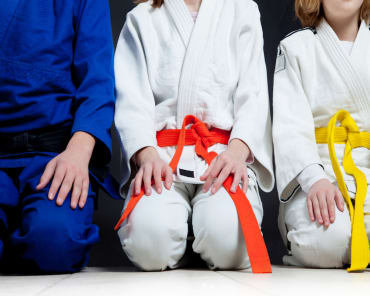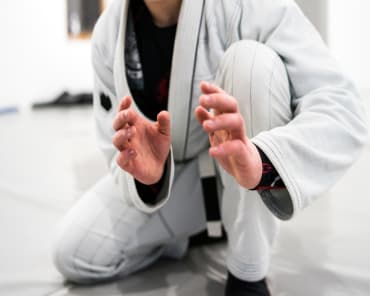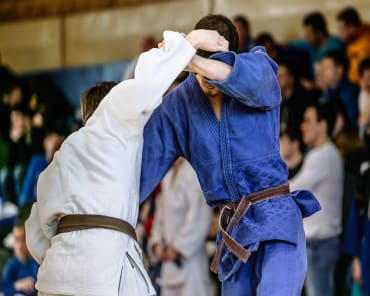Brazilian Jiu-Jitsu (BJJ) is not just a martial art; it's a holistic approach to health and fitness that offers a myriad of physical and mental benefits. This blog explores the multifaceted ways in which practicing BJJ contributes to overall well-being, highlighting its positive impact on physical health, mental resilience, and a balanced lifestyle.
1. Cardiovascular Fitness
BJJ is an intense and dynamic martial art that involves continuous movement, transitions, and cardiovascular exertion. Engaging in sparring sessions, drills, and positional training elevates heart rate and improves cardiovascular endurance. The aerobic nature of BJJ contributes to enhanced stamina, better circulation, and overall cardiovascular health.
2. Strength and Conditioning
The nature of BJJ training requires the use of various muscle groups for maneuvers, escapes, and submissions. Practitioners develop functional strength, endurance, and flexibility through the execution of techniques. The engagement of both upper and lower body muscles during training sessions results in a comprehensive strength and conditioning workout.
3. Flexibility and Mobility
BJJ involves a wide range of movements, including joint locks, escapes, and guard passes, which enhance flexibility and mobility. The constant need to adapt to different positions on the mats contributes to improved joint range of motion and overall flexibility. This increased flexibility is beneficial not only for BJJ but also for daily activities and injury prevention.
4. Weight Management
Regular BJJ training provides an effective avenue for weight management and fat loss. The combination of cardiovascular exercise, strength training, and the calorie burn associated with intense sessions can contribute to maintaining a healthy weight. BJJ offers a dynamic and engaging alternative to traditional workout routines, making it an enjoyable way to stay active.
5. Stress Relief and Mental Well-Being
BJJ is renowned for its stress-relieving properties. The focused and immersive nature of training requires practitioners to be present in the moment, promoting mindfulness and mental clarity. The endorphins released during physical activity contribute to reduced stress levels, anxiety relief, and an overall improvement in mental well-being.
6. Problem-Solving and Cognitive Skills
The strategic and tactical aspects of BJJ foster mental sharpness and problem-solving skills. Practitioners must anticipate and counter their opponents' moves, creating a mental workout that enhances cognitive abilities. The constant need to adapt to changing situations on the mats promotes quick thinking, decision-making, and improved cognitive function.
7. Social Connection and Community Support
Being part of a BJJ community provides a social support system that positively impacts mental health. The camaraderie among practitioners creates a sense of belonging and support. The shared journey, mutual encouragement, and the bonds formed on the mats contribute to emotional well-being and a sense of community that extends beyond the training environment.
8. Discipline and Goal Setting
BJJ requires dedication, consistency, and discipline. Practitioners set goals for techniques, belt promotions, and competition achievements, creating a framework for personal development. The discipline cultivated in BJJ training carries over into other aspects of life, fostering a proactive approach to goal setting and achievement.
9. Self-Defense Skills and Confidence
Beyond the physical and mental benefits, BJJ equips practitioners with practical self-defense skills. The confidence gained from knowing how to defend oneself contributes to improved overall well-being. This self-assurance often extends beyond the mats, positively influencing how individuals navigate challenges in their daily lives.
10. Lifelong Journey of Learning and Improvement
BJJ is a lifelong journey of learning and improvement. The pursuit of knowledge and skill refinement keeps practitioners engaged and motivated. The continuous nature of this journey promotes a positive mindset, adaptability, and an ongoing commitment to personal growth, contributing to overall health and fitness throughout a practitioner's life.
In conclusion, Brazilian Jiu-Jitsu is a holistic approach to health and fitness that goes beyond physical exercise. Its impact on cardiovascular fitness, strength and conditioning, mental well-being, and overall lifestyle make it a compelling choice for individuals seeking a well-rounded approach to their health. BJJ offers not just a martial art but a transformative journey that positively influences various aspects of a practitioner's life.






